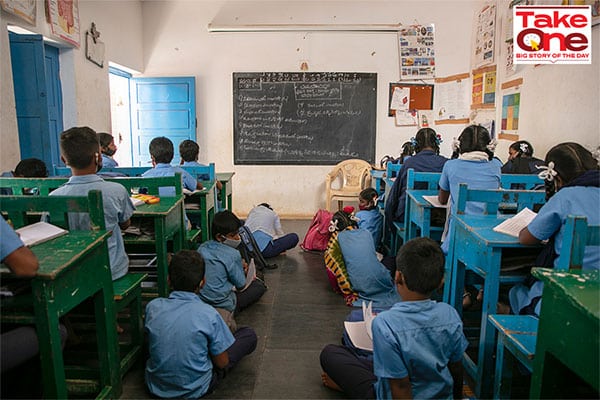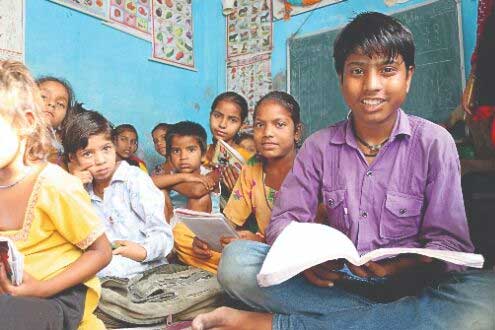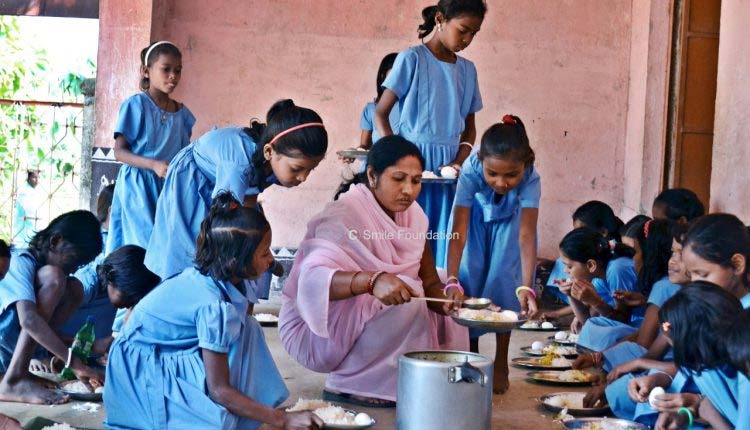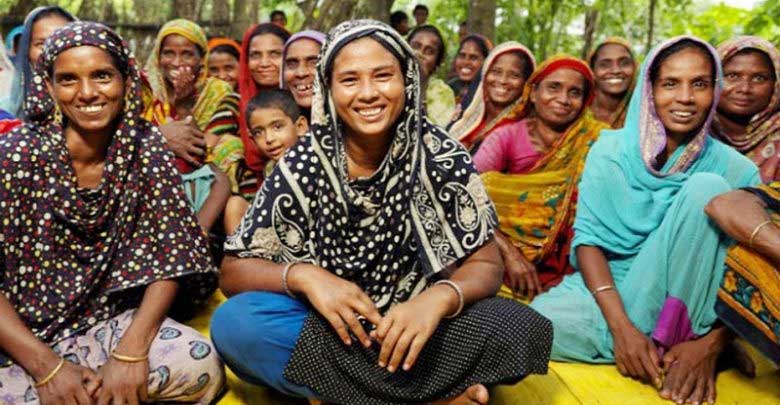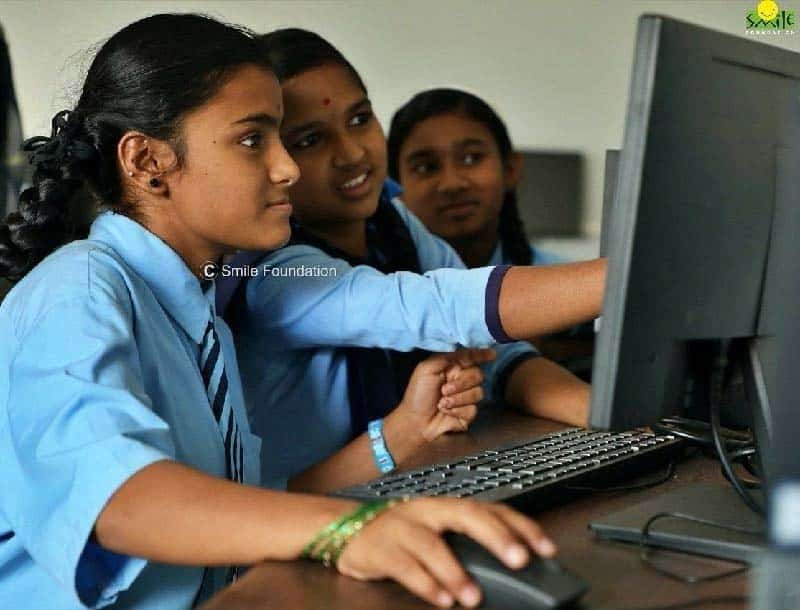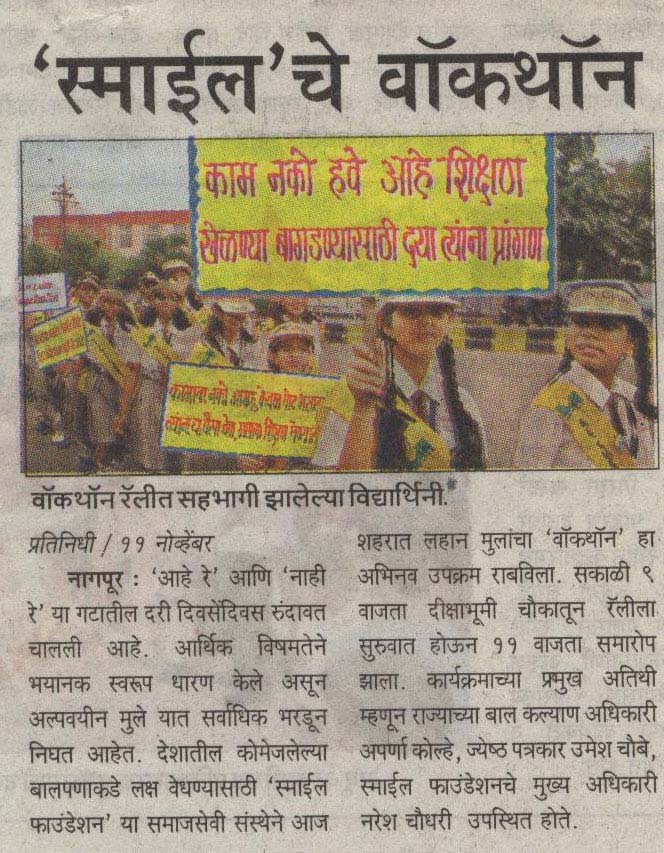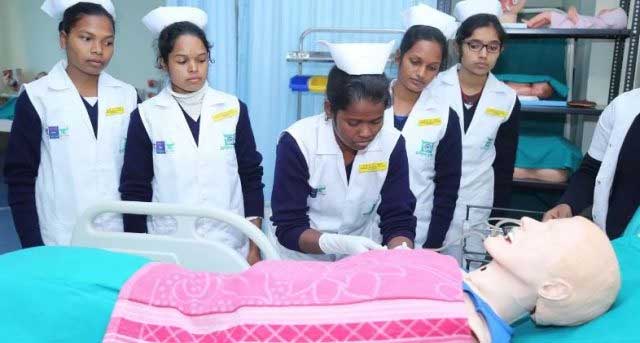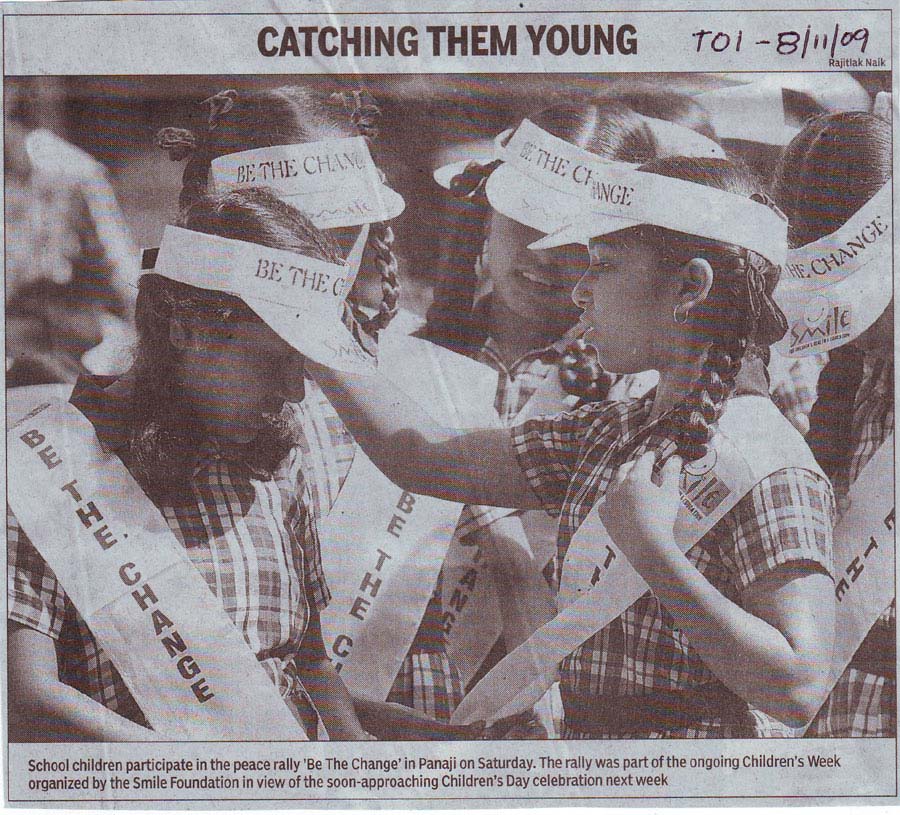Inside the reshaping of CSR in India during Covid-19
- Home
- Smile Team
- Page 158
(May 6, 2021)
With the recent amendments to CSR rules, a gruesome second coronavirus wave and reduced corporate performance due to the pandemic, social responsibility spend for companies is not going to be the same this fiscal
CSR expenditure on education reduced from Rs5,718 crore in FY19 to Rs5,244 in FY20. The pandemic has affected company profitability, which in turn has impacted overall CSR giving. Representative image of the RG Halli government school in Bengaluru ; Image: Selvaprakash Lakshmanan
Corporate Social Responsibility (CSR) has been evolving ever since India became the first country in the world to legally mandate it in 2014. A number of recent developments in 2021, as India finds itself in the midst of the second wave of the Covid-19 pandemic, has set the stage for major shifts in the way companies view social responsibility and work with the social sector.
In the wake of urgent emerging health care requirements, as India pushes over four lakh Covid-19 cases every day, the ministry of corporate affairs (MCA) has been issuing multiple clarifications on what companies could consider as part of their CSR expenditure. The most recent, on May 5, was the announcement that companies could use CSR funds for “creating health infrastructure for Covid-19 care, establishment of medical oxygen and storage plants, manufacturing and supply of oxygen concentrators, ventilators, cylinders and other medical equipment for countering Covid-19”.
This comes on the heels of another clarification on April 22, when the government had clarified that CSR funds could be used to set up “makeshift hospitals and temporary Covid care facilities”. The purpose of these new clarifications, according to experts, is to help companies with compliance as they finalise their CSR budgets for the current financial year in the coming months.
Corporates in India, as they draw up their CSR budgets this year, are trying to strike a balance between taking stock of emerging health care requirements and their traditional social focus areas.
Sudha Murty, chairperson of the Infosys Foundation, tells Forbes India that outlays for the coming financial year will be prioritised around Covid-19 relief, followed by the construction of infrastructure for the Bengaluru Metro, as the Karnataka state government has given a go-ahead for the project and it provides livelihoods to many workers.
“Out of our Rs 275 crore budget, we are spending Rs 90 crore on Covid-19 this year. This can increase depending on the situation. Our first priority is Covid relief… we adjust [focus among causes] and keep adapting.” The Foundation had allocated Rs 110 crore to Covid relief last year, taking the total Covid-related contribution to Rs 200 crore over the past two years.
Murty says apart from establishing a 50-bed Covid hospital in Bengaluru last year, they are now supporting health care infrastructure by giving ventilators, oxygen concentrators, PPE kits and masks. The Foundation is also helping construction workers with food kits, apart from conducting awareness programmes around vaccinations to remove vaccine hesitancy.
Making Sense of New Regulations
Companies are also trying to shift operational guidelines as per the framework of the new CSR Rules that the MCA notified in January, which has introduced significant changes to monitoring and evaluation of CSR activities, and utilisation of CSR expenditure.
India’s CSR expenditure for FY20 stands at Rs 17,885 crore, down from Rs 18,655 crore the previous year. CSR constitutes 28 percent of India’s total philanthropic giving, but is expected to further decline by 5 percent this year, according to the India Philanthropy Report 2021 by Dasra and Bain & Company. “Domestic corporations have seen a decline in profitability during the past year. Listed companies’ profitability declined by 62 percent in the months immediately following India’s initial Covid-19 lockdowns,” the report says, adding that the challenge faced by the social sector will be compounded by the shift away from other traditional funding areas (like education, rural development, environment etc) toward Covid-19 relief.
“Currently, companies are just worried about impact on their profits due to lockdowns in various parts of the country and lasting impacts of the second wave of the pandemic. But during this time, the entire nature of CSR has undergone a fundamental change,” says Bharat Vasani, corporate partner at law firm Cyril Amarchand.
He explains that the new Rules mete out serious punishment for non-compliance, which is a long way from the social responsibility regulation that was initially voluntary for companies. Not only do the new Rules prescribe greater obligations for the Board and the CSR Committees of companies to monitor and report on CSR activities through annual action plans, but also require certification of the CFO on fund disbursal and utilisation.
Capital assets that companies have created or acquired through CSR cannot be held directly by them, but by the NGOs or project beneficiaries, including a Section 8 company, registered trust or society. “So if companies acquire movable or immovable assets like ambulances or construction of school buildings, for example, they have to transfer it to the CSR entity within six months. A lot of companies are concerned as they do not have their own CSR Foundations and partner with [third-party] NGOs that do their CSR activities,” says Vasani.
There are other changes to the Rules that both companies and nonprofits are likely to find challenging as they go about CSR activities this year. One is a provision that states transfer of unspent funds to a designated “Unspent CSR account” or to a fund specified in Schedule VII of the Companies Act within prescribed timelines. “This creates a lot more pressure on spending as opposed to using it judiciously,” says Aakash Sethi, CEO, Quest Alliance, a Bengaluru-based nonprofit that works on education and skilling and has collaborations with 14 corporate donors, including Accenture India, IBM, Cisco, JP Morgan, HSBC and Godrej.
That said, Sethi also points out that Amendments are likely to restructure grant cycles of corporates this year, in a way that aligns with an NGO’s budgeting cycle of April to March. “Grant cycles varied from company to company. For some it was August to July, for some December to March. So it was a nightmare to keep track of funds and budget for them. We used to juggle with reporting deadlines and timelines, which would be different for different funders,” he says. “With the amendment, it is likely that the grant cycle will stick to the April-March cycle, which will help us get a realistic estimate of fund inflow and outflow, plan better, and streamline review and reporting.”
The compliance requirements and emphasis on impact assessment in the new CSR Rules will trigger a greater focus on accountability for CSR, believes Srikrishna Sridhar Murthy, co-founder, Sattva, a social enterprise working with NGOs and corporates to implement CSR projects. “NGOs that come under the CSR law have to register on the MCA portal, so you can track them. All of this is leading to better data collection and accountability.” He agrees with Sethi with regards to the timelines for CSR activity. “The planning cycle will move up a few quarters because of the annual project plan requirement that will force companies to plan for CSR right from the beginning of the year. So far, bulk of disbursement and compliance happens in the second half of the year.”
In Recalibration Mode
The regulations mandate that profitable companies are required to spend at least 2 percent of their past three years’ average net profits towards CSR activities every year. The pandemic has challenged the narrative that CSR is merely cheque-writing as companies had to collaborate with other stakeholders to meet the needs of the more vulnerable communities within their ecosystem. This also means there is a greater focus on innovation around finance this year.
Priya Naik, founder of Samhita Social Ventures, has been facilitating a PPPP [public-private-philanthropic-partnership] model of collaboration during the pandemic. She is working with companies to implement a blending financing strategy, where returnable grants are given to individuals who repay it once their need is fulfilled. This money is given to someone else and the cycle continues.
“This becomes a revolving fund model, where over 3-4 years, you impact ten times more people as opposed to traditional grants, which is a one-to-one model,” she says, adding that companies are also helping beneficiaries get access to and avail government schemes. “Blended finance models like returnable grants provide higher leverage when there is just not enough CSR money available to respond to the sheer number of people who need attention.”
Social sector organisations are adapting. Santanu Mishra, co-founder of the Delhi-headquartered Smile Foundation, says that given the Covid situation in India and pace of vaccinations, “at least for the next one year or so, corporates would continue to prioritise their activities in and around Covid-19, so whatever you are doing has to be Covid-complaint.” This means, he explains, that NGOs will have to recalibrate the definition and scope of their processes so that even non-health related causes can go on without disruption despite the pandemic. “For example, as part of our livelihood programme, we were providing manpower to retail and services sectors that are physical in nature. Over the past six months, we have completely revamped it and now we have e-verticals,” he says.
Many corporates, who work on long-term programmes and causes, are trying to strike a balance this year. Manoj Balachandran, head of CSR at IBM India, says the company has been active in terms of Covid relief work like collaborations with grassroots NGOs or employee participation in pandemic-related campaigns. But the focus is kept steady on educational skilling too, around which close to 95 percent of the company’s existing CSR programmes are based. They are trying to approach CSR differently, he says. “We are readjusting our expectations from the programmes and the way we approach it will also change based on emerging requirements on the ground.”
IBM India’s flagship programme, STEM For Girls, for instance, used to rely a lot on face-to-face interactions. But during the pandemic, the company forged partnerships with the government and other stakeholders to take the processes online. “During such times, partnerships become important to increase reach of students in different parts of the country,” he says.
Vikram Gulati, SVP, corporate affairs and governance at Toyota Kirloskar Motor tells Forbes India that their company has a similar approach. While they have supplemented CSR funds to contribute toward extensive Covid-19 initiatives ranging from oxygen concentrators and cylinders to food and ration kits, they plan to keep an unwavering focus on their ongoing CSR activities in traditional focus areas like education, environment, road safety, skill development and disaster management this year. Gulati, who allocated Rs 163 million toward CSR in FY21, believes that amendments to the CSR regulation allow “better compliance with CSR laws while improving the ease of doing business, decriminalising non-compliance, and bringing more transparency”.
Balachandran of IBM India agrees. He believes the new CSR Rules provide more clarity on what is expected of corporates. “Until last year, even if you didn’t spend on CSR outlays, you had the opportunity to explain it, but this year, they are making it mandatory to spend. They are also ensuring you have an annual action plan that will help you have a structured approach toward programmes and deployments.”
Long Way to Go
Experts in the social sector point out that there are still a lot of challenges, exacerbated by the pandemic and the recent amendments, which need to be ironed out. Sethi of Quest Alliance says non-profits still struggle to find growth capital. “NGOs do not get money to strengthen people skills, governance, tech capabilities, ability to fundraise etc. As a growing organisation, I need money for that to be able to make a significant difference,” he explains. “But most organisations, including the amendments, consider these expenses as simply overheads of an NGO. This creates a vicious cycle. If you can’t invest in the growth of your non-profits, you can’t deliver a better quality of impact. CSRs demand outcomes, but are not investing cash in those line items that are important to organisations.”
While Mishra of Smile Foundation points out that many smaller grassroots NGOs need support to be compliant to the new legislation and go digital during the pandemic, Naik of Samhita points out that the smaller NGOs are likely to be at the losing end. She says the Rules specifically say that implementation of CSR projects has to be undertaken by entities in the social sector that have a track record of at least three years undertaking similar activities. This will impact new NGOs.
The problems for new, small and medium-sized NGOs are compounded by two more problems: First, the recent amendments to the Foreign Contribution (Regulations Act), 2010, that prohibit re-granting or transfer of FCRA funds from one organisation to another. Many smaller organisations working at the grassroots do not front-face foreign donors directly and receive funding via larger NGOs. Second, the predominant diversion of funds away from traditional areas like education, livelihood, rural development, to PM Cares, health emergencies and Covid-relief.
“I’m worried about the small and medium-sized NGOs,” Naik says. “Who is going to pay them? You are making it difficult for them to access foreign funding [because of the new FCRA regulations], CSR money cannot be given to organisations who have been around for less than three years, and not all philanthropists necessarily know how to reach out to very small organisations. How will new NGOs come up?”
Naik says she knows of a handful of small and mid-sized NGO founders who have quit in the past few months and are looking for jobs in other places. “When a founder gives up, it points to the fact that there is no money, which is worrisome. The government promotes Startup India, which is fantastic, but what about Startup NGOs to strengthen civil society?”
Murthy of Sattva agrees. He says that since the new Rules require the CFO and her team—with, say, a Rs 10-20 crore Budget across 40 projects—to do extra work with a lot more scrutiny, they are only likely to bring the number of projects down. “This means smaller projects, which usually with smaller NGOs, will be in stress,” he says, adding that a lot of NGOs still don’t know how the new amendment is going to affect their lives. “A grassroots NGO with less than Rs 2 crore of annual revenue has to stand up to the standard of scrutiny by the CFO of a major company. Most grassroots organisations do not have that capacity,” he explains. “It is important for CSR companies to look at their portfolio and help build capacity of their NGO partners, particularly with respect to compliance. Be patient with them and do not leave them behind.”
Mishra, whose Smile Foundation runs with 90 percent CSR money, continues to be hopeful of that because he says companies, particularly the younger generation of entrepreneurs, realise the long-term value in being socially responsible. “A few years ago, entrepreneurs below 35 years of age were not donating, but today, the same age group is very sensitive toward giving. When these entrepreneurs make enough wealth, we will see a very different world, where companies will chase profits, but will also focus on it to be shared with society and community.”



